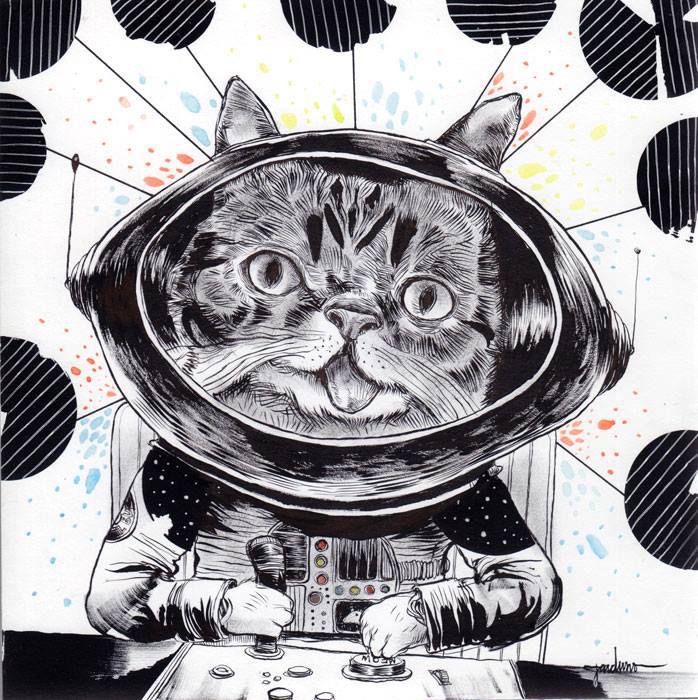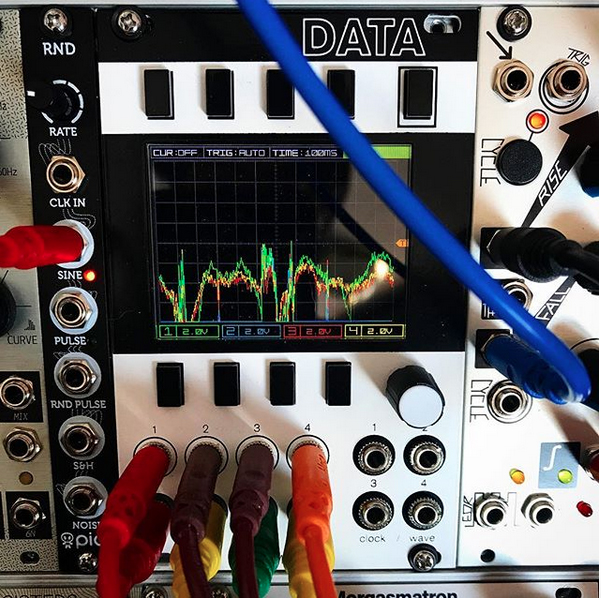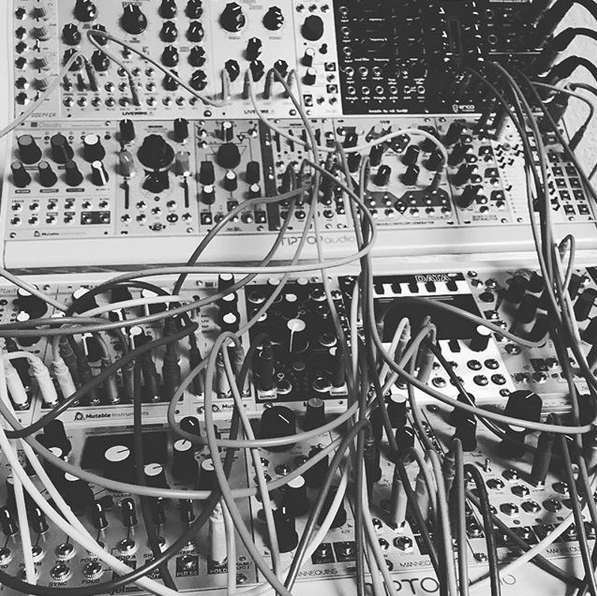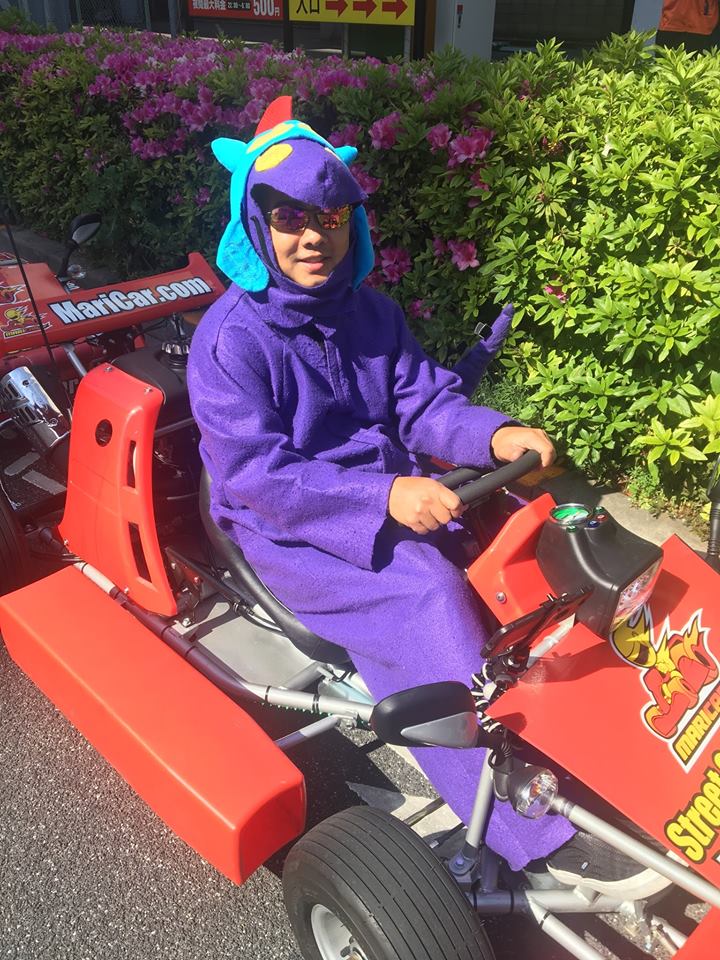A Tale Of Modular Synthesizers – Another Open Source Success Story
Mochipet will performed at our Aaron Swartz Day Opening Party – Raw Thought at the DNA Lounge on November 9, 2018.
TICKETS to the next Raw Thought, March 8, 2019
| Come to Raw Thought on March 8th (from 9pm-2am) & see Grumpy Green’s super special Psychedelic Chill Room (an immersive space for both dancing & chilling).
DJs include: Melotronix, Tha Spyryt, Ailz, & Cain MacWitish – with visuals by Projekt Seahorse – all at our March 8th Raw Thought at the DNA Lounge in San Francisco! TICKETS |
All pics below of Mochipet and kitties link to Mochipet songs :-)
 Lisa Rein: So you mentioned that you’ve been feeling very experimental lately, and I saw on your instagram that you’ve been messing with a lot of new equipment.
Lisa Rein: So you mentioned that you’ve been feeling very experimental lately, and I saw on your instagram that you’ve been messing with a lot of new equipment.
Mochipet: I always do that.
LR: Well what are you playing with recently?
Mochipet: I’m doing a lot of modular synth stuff. I’ll probably be doing some modular synth stuff on Friday.
LR: Is that just a type of synthesizer? What’s “modular synth” exactly?

Mochipet: Modular synth is basically kind of like a synthesizer, with a bunch of parts. You can take separate parts and make a frankenstein thing of whatever you want.
It’s like if you had the ability to take the EQ off of one synthesizer, and then took the amp of another synthesizer, and then put them all together. All the pieces are modular. They’re separate. So you can put them all together and make a brand new thing.
LR: So it allows you to customize your sound?
Mochipet: Yes it’s very customized because everybody can put things together in a very different ways. It’s kind of like LEGOs I guess. That’s a great analogy: yes just like LEGOs. It’s just parts.
LR: Do the parts have to be a certain brand?

Mochipet: No. There are many brands of modules. That’s the cool thing about it is that it’s a very decentralized system. So, basically, there’s a standard.
It’s kind of like the Internet: If people follow the standard their pages will work in a browser. This is kind of like that with modular synths. They all have a certain voltage. They all have a certain voltage range, for notes, and things like that.
There’s kind of a standard that this German company Doepfer made that other people just adopted. So there’s a lot of really small operations, individual people, making modules.
Doepfer made their specs open. There’s a lot of standards now where I think people realize if you make them open then you’re gonna get a lot more use out of it. If it was a closed system, nobody would use it. It would be useless. You need open systems in order for people to be able to participate,, and that really opens the door up for a lot of individuals to do really unique things. Because everybody thinks differently.
Rather than having a big bureaucratic company with standards and rules dictating whatever their idea of what the industry should be like. There’s none of that. Instead, it’s just random people making different things. But they all work together. So you can connect anything to anything and it will work, and you can make unique things out of it that nobody could ever make before.
LR: So that’s what those contraptions are that we see in your photographs?
Mochipet: Yeah yeah. It’s a really cool thing. It’s kind of new. Doepfer came out with it many years ago, but the whole modular synth “scene” kind of thing is pretty new. I mean like five or ten years old. People are doing it just because they love it. They are making really interesting instruments and they like coming up with ideas. Some of these modules, there are only like 50 of them. They’ll make 50. And they’ll sell em, and that’s it.
LR: So some of them are rare and hard to obtain?
Mochipet: Yes. Some of them become rare. Some of them are very hard to find. There’s a lot of them that are made all over the world. There’s this guy in China that makes really cool ones. There’s people in Italy that make really cool modules. There’s this company Make Noise, here in the states that’s very popular. It’s kinda nerdy. It’s kind of like open source programming, but with music. It’s like people can write little programs or functions or whatever and put it into the system. And then people can take it and ya know, do whatever they want with it. Do new things with it.
This one company, Mutable Instruments. They’re in France. All these companies are just like, one guy. There’s like a guy who designs the modules and he tells a guy how many knobs. But it’s just those guys. There’s no team. So he (the guy in France) started doing digital modules, which incorporate computer programming within them. All his stuff is open source too. So, you can take his code and make the module, or add more stuff to it, or change it. There’s an open source community spirit to it, which is really nice.
LR: Does he actually release it under an open source license?
Mochipet: Yes!
LR: (Lisa looks it up online.) Hey cool it’s a Creative Commons: cc-by-sa 3.0 license.



